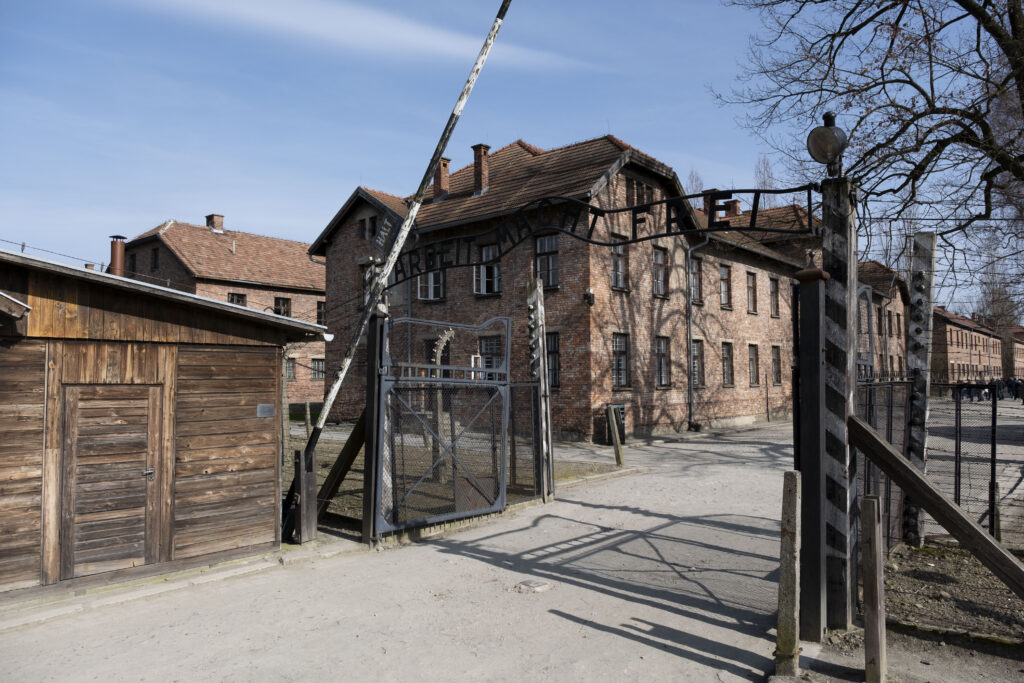Enjoy this article?
Most Museums Journal content is only available to members. Join the MA to get full access to the latest thinking and trends from across the sector, case studies and best practice advice.
Followers of the Auschwitz-Birkenau Museum’s account on the X platform can see a post every two hours, around the clock, about an individual camp victim who was born on that day. A short biographical note is accompanied by a photograph, when possible.
In this way, we want to emphatically highlight that the 1.3 million people deported to the German Nazi camp Auschwitz is not an abstract statistic but the history of specific people: Jews, Poles, Roma and Sinti, Soviet prisoners of war and many others.
Through these biographies in the virtual space of remembrance that we strive to build on social media, we fulfil the most important element of the mission of the Auschwitz Memorial – commemorating the victims.
This approach also allows us to showcase Auschwitz’s complex history – it served as a concentration camp and an extermination centre – and to illustrate the multi-dimensionality of memory about the site.
This memory must represent multiple voices based on, of course, facts. Names, numbers, dates, descriptions of events or the fates of specific victims – we attach huge importance to ensuring that even these brief pieces of information are rooted in sources and based on the results of the latest historical research.
In this way, by shaping memory, we also strive to embrace a sphere of knowledge. This makes Auschwitz cease to function solely in the symbolic dimension.
We aim to use every available tool to reach new generations. Three decades ago, this was primarily achieved through visits to the physical site. At the beginning of the 21st century, the museum opened its website. Today, we use digital technology to reach people worldwide.
Among similar institutions, we pioneered social media to educate people about Auschwitz’s history. This is also a space where we confront disinformation, the distortion of history or attempts to attack the memory of Auschwitz and the Shoah.
In recent years, we have made a great effort to build educational resources that are accessible to people worldwide. Our online lessons are multi-layered compendiums of knowledge concerning many aspects of the camp’s history.
They are designed so that a researcher who wants to learn details of a particular issue, a teacher who needs excerpts from a survivor’s account for a specific lesson plan or someone who just wants to learn a few general facts can all benefit from them. The On Auschwitz podcast allows our historians to reach listeners directly.
During the global pandemic, we witnessed something unprecedented. For months, the Memorial Site was totally empty. This led us to launch a live interactive guided tour programme conducted online on the Auschwitz in Front of Your Eyes platform.
Every person who visits the Memorial Site or clicks the “follow” button on the museum’s profiles on various social media platforms becomes an ambassador of memory in their own way.
Their encounter with Auschwitz should not only be a lesson of history but, above all, a personal and identity-shaping experience.
Being confronted with the human tragedy of Auschwitz should help us all face today’s choices and understand the dangers of rising populism and the various ideologies that aim to divide and create hostility toward the “others”.

The critical mission of the Auschwitz Memorial is to commemorate victims. At the centre of their tragedy lies antisemitism and other ideologies of hatred, which – as we could see more than eight decades ago – can trigger a horrifying process of dehumanisation.
The crimes perpetrated by the German state in the name of Nazi ideology are a warning to all of us. After all, those crimes were perpetrated by people who were able to turn other people into victims.
The memorial – both on-site and online – should be a space for analysing our moral responsibility for the world we live in. We believe that the memory of Auschwitz must influence our moral choices, so that we can all contribute to building a better world, today and in the future.
Pawel Sawicki is the deputy spokesman at the Auschwitz-Birkenau Memorial and Museum
Most Museums Journal content is only available to members. Join the MA to get full access to the latest thinking and trends from across the sector, case studies and best practice advice.